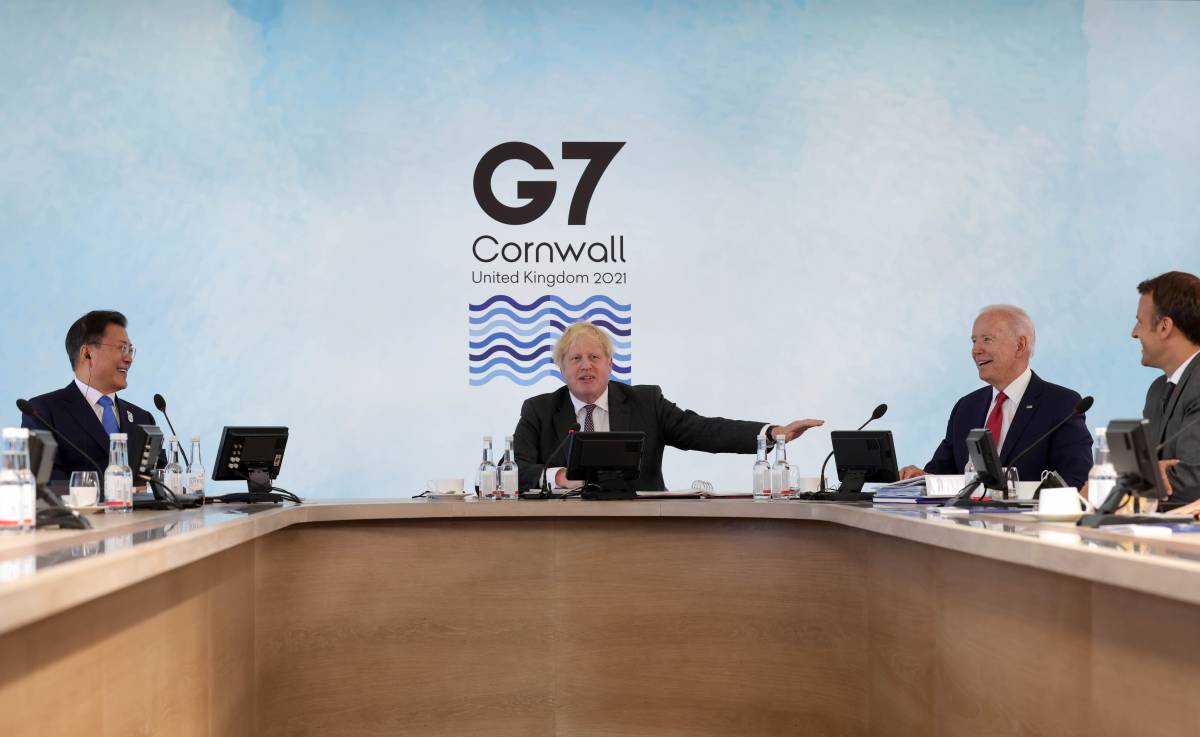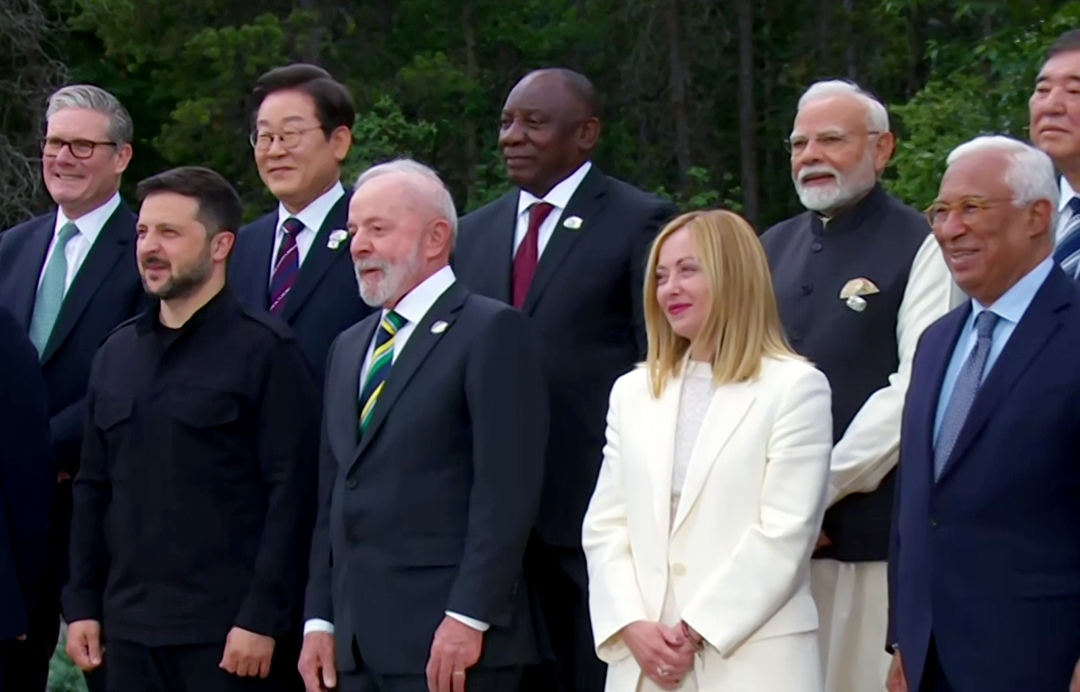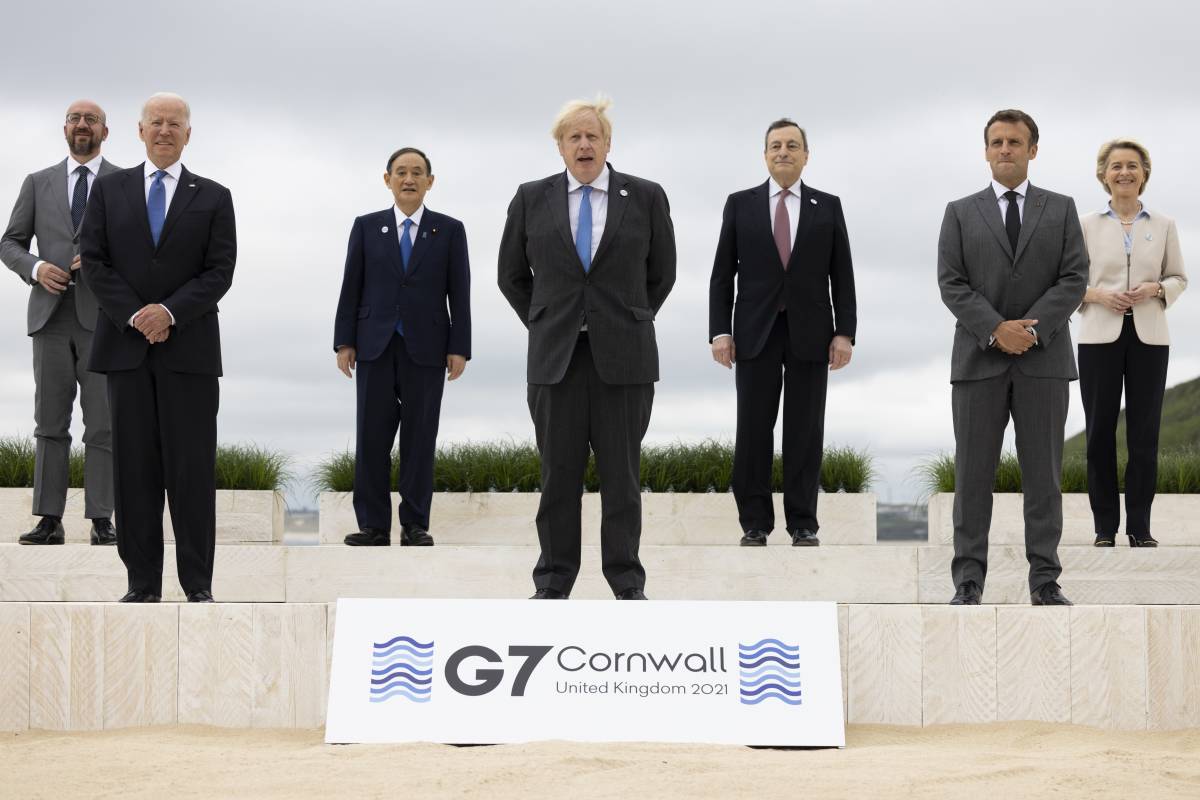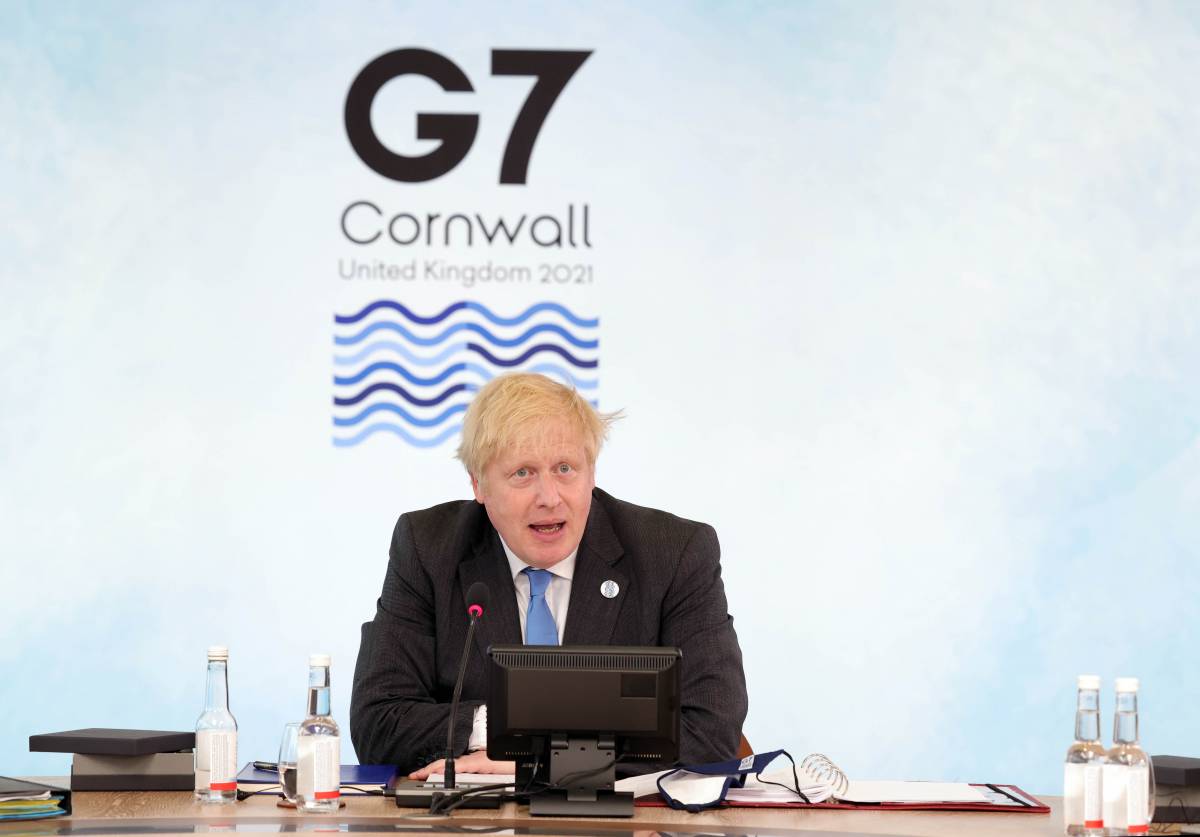PM says the doses would come both directly and through the international COVAX program, reports Asian Lite News
Prime Minister Boris Johnson says the Group of Seven wealthy nations have pledged over 1 billion coronavirus vaccine doses for poorer nations.
Speaking at the end of a G7 leaders’ summit in southwest England on Sunday, Johnson said the doses would come both directly and through the international COVAX program.
The commitment falls far short of the 11 billion doses the head of the World Health Organization said is needed to vaccinate at least 70% of the world’s population by mid-2022 and truly end the pandemic.
The Group of Seven leaders are expected to make other commitments after their three-day summit, which Johnson hosted.
The G7 leaders aim to end their first summit in two years with a punchy set of promises on Sunday, including vaccinating the world against coronavirus, making huge corporations pay their fair share of taxes and tackling climate change with a blend of technology and money.
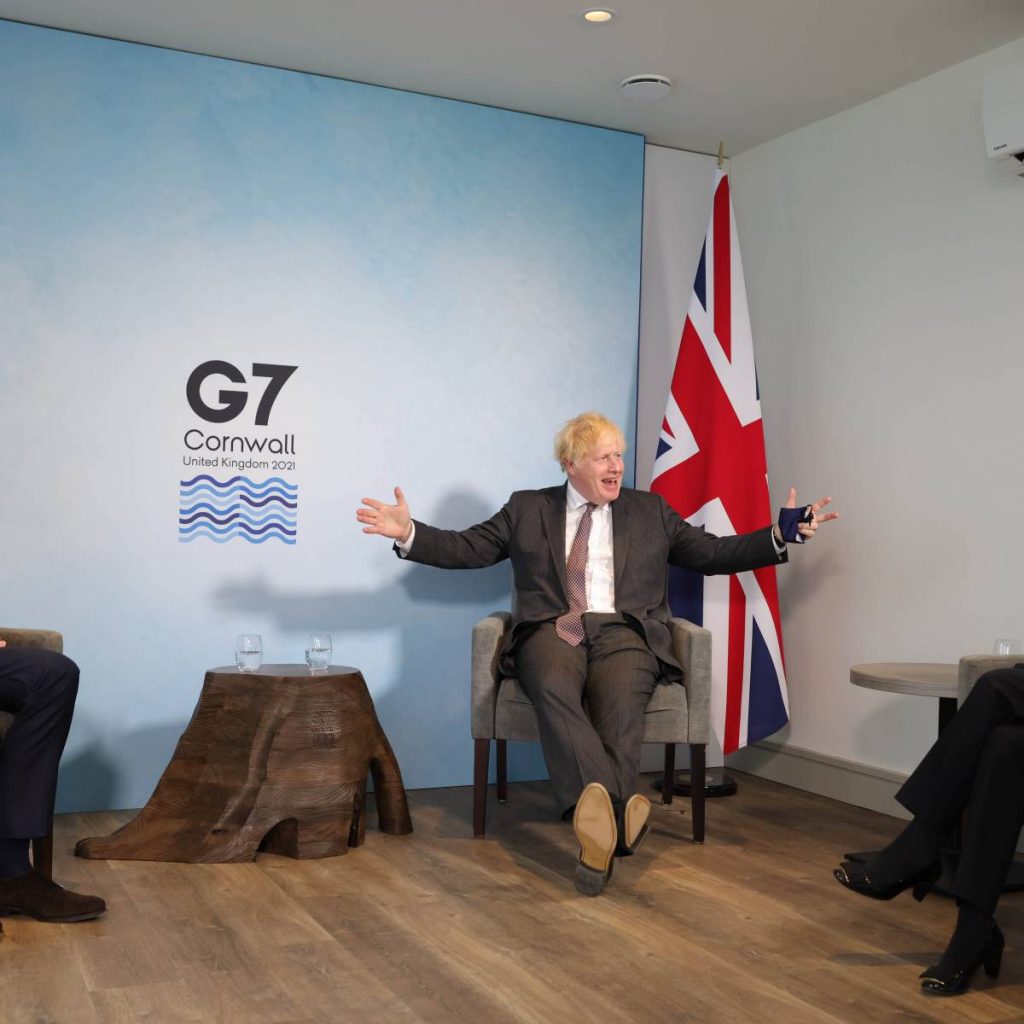
They want to show that international cooperation is back after the upheavals caused by the pandemic and the unpredictability of former U.S. President Donald Trump. And they want to convey that the club of wealthy democracies — Canada, France, Germany, Italy, Japan, the United Kingdom and the United States — is a better friend to poorer nations than authoritarian rivals such as China.
But it was uncertain how firm the group’s commitments will be on coronavirus vaccines, the economy and the environment when the leaders issue their final communique. Also unclear was whether all of the leaders would back the United States’ call to chastise China for repressing its Uyghur minority and other abuses.
Prime Minister Boris Johnson, the summit’s host, wanted the three-day meeting to fly the flag for a “Global Britain,” his government’s push to give the midsized country outsized global influence.
Yet Brexit cast a shadow over that goal during the summit on the coast of southwest England. European Union leaders and U.S. President Joe Biden voiced concerns about problems with new U.K.-EU trade rules that have heightened tensions in Northern Ireland.
But overall, the mood has been positive: The leaders smiled for the cameras on the beach at cliff-fringed Carbis Bay, a village and resort that became a traffic-clogged fortress for the meeting. The last G7 summit was in France in 2019, with last year’s event in the United States scuttled by the pandemic.
The leaders mingled with Queen Elizabeth II at a royal reception on their first evening and were served steak and lobster at a beach barbecue after watching an aeronautic display by the Royal Air Force Red Arrows on their second.
America’s allies were visibly relieved to have the U.S. back as an engaged international player after the “America First” policy of the Trump administration.
“The United States is back, and democracies of the world are standing together,” Biden said as he arrived in the U.K. on the first foreign trip of his 5-month-old presidency. After the G7 summit, the president will have tea with the queen on Sunday, attend a NATO summit in Brussels on Monday and hold talks with Russian leader Vladimir Putin in Geneva on Wednesday.
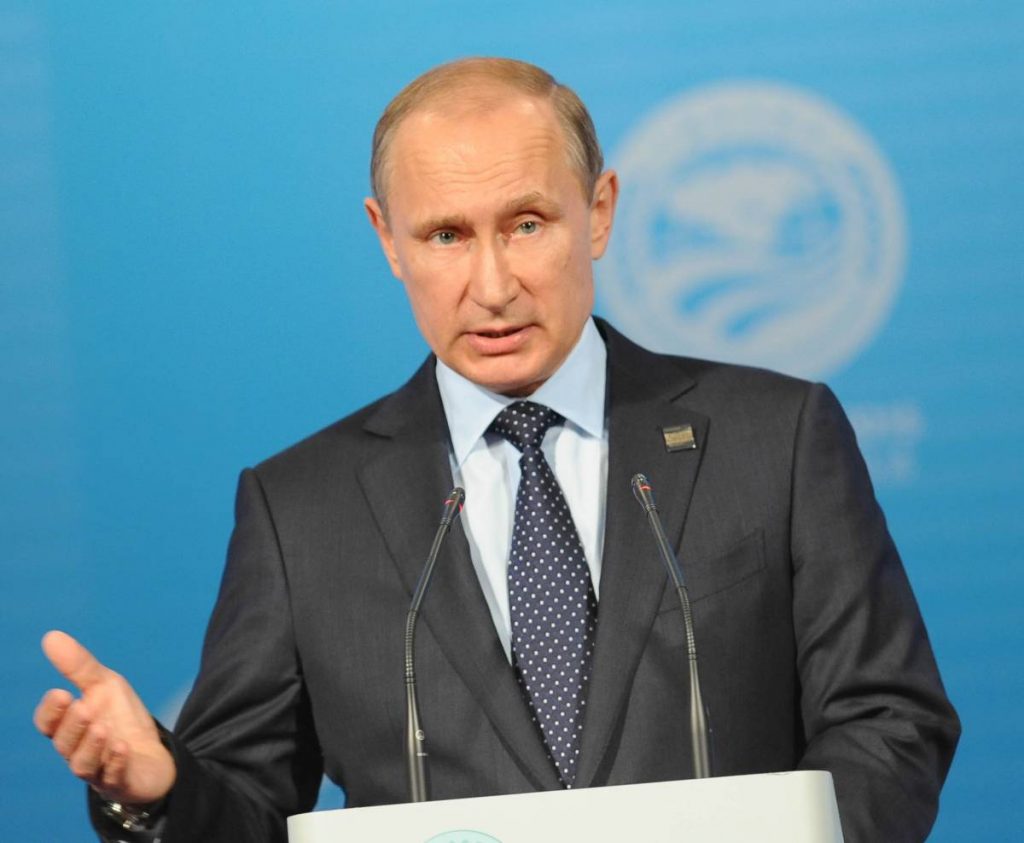
At the G7, Johnson described Biden as a “breath of fresh air.” French President Emmanuel Macron, after speaking one-to-one with Biden, said, “It’s great to have a U.S. president part of the club and very willing to cooperate.”
The re-energized G7 made ambitious declarations during their meetings about girls’ education, preventing future pandemics and financing greener infrastructure globally. Above all, they vowed to share vaccine doses with less well-off nations that urgently need them. Mr. Johnson said the group would pledge at least 1 billion doses, with half of that coming from the United States and 100 million from Britain.
World Health Organization Director-General Tedros Adhanom Ghebreyesus and other public health officials commended the vaccine pledge but said it’s not enough. To truly end the pandemic, he said, 11 billion doses are needed to vaccinate at least 70% of the world’s population by mid-2022.
“We need more and we need them faster,” Tedros said.

Climate change is a key focus of the leaders’ final day of talks on Sunday, and the group is expected to announce new financing measures to help poorer countries reduce carbon emissions.
The “Build Back Better for the World” plan will promise to offer financing for infrastructure — “from railways in Africa to wind farms in Asia” — to help speed up the global shift to renewable energy. The plan is a response to China’s “belt and road” initiative, which has increased Beijing’s worldwide influence.
Climate activists and analysts say filling a $100 billion annual fund to help poor countries tackle the effects of global warming should be at the top of the G7′s list.
All G7 countries have pledged to reach net zero carbon emissions by 2050, but many environmentalists say that will be too little, too late.
Naturalist David Attenborough addressed the leaders by video Sunday, warning that humanity is “on the verge of destabilizing the entire planet.”
“If that is so, then the decisions we make this decade — in particular the decisions made by the most economically advanced nations — are the most important in human history,” the veteran documentary filmmaker said.
Max Lawson, head of inequality policy for Oxfam International, welcomed plans to boost investment to help poor countries reduce their carbon footprints but said “it doesn’t help the poor people that are being hit by climate change right now.”
ALSO READ-G7 leaders agree on efforts to combat climate crisis
READ MORE-G7 ends up with promise on 870mn jabs


